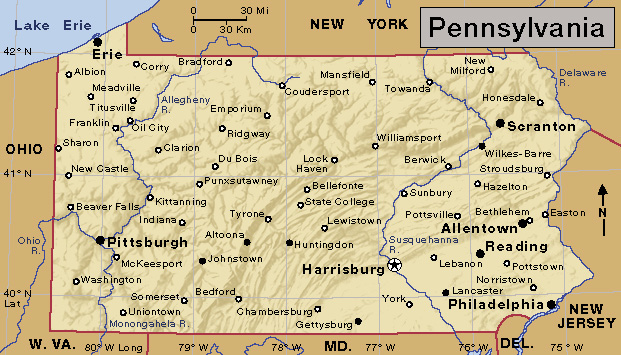Lancaster, Pennsylvania (pop. 58,039; met. area pop. 552,984), is the commercial center of Lancaster County, one of the richest farming regions in the United States and a popular tourist area. Lancaster is also an important manufacturing city. It lies along the Conestoga River in southeastern Pennsylvania.

Lancaster’s chief products include aluminum, flooring, industrial power tubes, pharmaceuticals (medicinal drugs), and printed materials. The city is the trading center for the region’s farm products, which include cattle, corn, poultry, and tobacco.
Lancaster has many historical buildings. The city’s Fulton Opera House was built in 1852 and is one of the oldest continuously used theaters in the United States. Wheatland, the estate of U.S. President James Buchanan, is in Lancaster. The city is also the home of Franklin & Marshall College and Lancaster Theological Seminary.
Amish and Mennonite settlers left Germany and–with members of other religious groups–founded Lancaster County in the early 1700’s. These and other peoples became known as the Pennsylvania Dutch (see Pennsylvania Dutch ). The settlers developed the area’s rich farmland. They also invented the Conestoga Wagon and the Pennsylvania rifle. Lancaster was chartered as a borough in 1742 and incorporated as a city in 1818.
During the Revolutionary War in America (1775-1783), the city provided food and guns for the Continental Army. Lancaster was the capital of the United States for one day, Sept. 27, 1777, when Congress moved from Philadelphia to York. Lancaster served as the capital of Pennsylvania from 1799 to 1812. The Lancaster Turnpike, the nation’s first important turnpike, was opened between Lancaster and Philadelphia in 1794. Lancaster has a mayor-council form of government and is the seat of Lancaster County.
